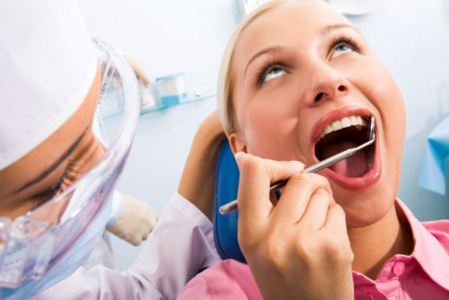Healthy Aging Tips
0 Comments
What Is Aging?
Aging is defined as the process of growing old or maturing. We age from the moment of conception. Our gestational age is measured in weeks between conception and birth. The Chinese count age starting from birth so that when you are born , you are one year old. Thus, taking steps toward healthy aging begins at day one. Photo: Getty Images

Eating a Well-Balanced Diet
The importance of eating a well-balanced diet cannot be over stressed. During pregnancy, consuming foods rich in omega-3 fatty acids helps develop a healthy brain and nervous system in an unborn child. Throughout our lives, a diet, which is low in saturated fats but high in unsaturated fats, includes whole grains plus plenty of fruits and vegetables, is one way to achieve healthy aging. Photo: Getty Images

Prevent Obesity
Taking measures to prevent obesity during childhood reduces the risk for the development of serious health issues in adulthood. According to the CDC, the current rate of childhood obesity in the United States has reached approximately 17% or 12.5 million children between the ages of 2 and 19. Obesity increases the risk for coronary artery disease, type 2 diabetes, hypertension, stroke, sleep apnea and respiratory problems, osteoarthritis and gynecological problems such as infertility and abnormal menses. Being overweight increases the risk for the development of breast, colon and endometrial cancers. Photo: Getty Images

Keep Physically Active
Regular physical exercise is important for good health, for both children and adults, young and old. To maintain a healthy weight, you need to burn more calories than you consume. Establishing a routine of regular physical activity during childhood and adolescence helps your body maintain a healthy weight as your metabolic rate slows with aging. As we age, regular physical exercise reduces our risk for developing coronary artery disease, reduce blood pressure and control blood lipid abnormalities. Photo: Getty Images

Exercise Your Brain
Your brain is an organ that learns, adapts and expand by interacting with the world around you through perception and stimulation. This process begins in the womb and continues throughout life. Mental stimulation not only improve brain function but actually protects against cognitive decline. Read, learn a foreign language and engage in stimulating conversation to keep your brain active. Use it or lose it. Photo: Getty Images

Don’t Smoke
Smoking is one bad habit that has a negative impact on every organ in your body. Women who smoke during pregnancy put their babies at increased risk for premature birth and the development of cleft lip and cleft palate. Smoking leads to lung cancer, lung diseases such as emphysema and COPD, coronary artery disease and cataracts. Children who are exposed to secondhand smoke are at increased risk for developing respiratory illnesses and asthma symptoms. Photo: Getty Images

Get Regular Medical Check-Ups
It is important for infants, young children and adolescence to have regular check-ups with a pediatrician. During these formative years, a pediatrician can monitor a child’s growth and development and administer vaccinations. As we age, an annual physical examination and preventative screening such as a mammogram and a colonoscopy, detect medical problems early. Regular check-ups promotes early detection and better prognosis of health issues. Photo: Getty Images

Get Regular Dental Check-ups
Good oral hygiene and an annual dental examination are two steps which you can take toward healthy aging. Gingivitis is a mild form of gum disease caused by the build up of plaque and tartar on teeth. Gums become red, swollen and can bleed. Daily brushing and flossing along with a regular cleaning by a dentist or dental hygienist can reverse most cases of gingivitis. Untreated gingivitis leads to periodonitis, which is an inflammation around a tooth. The gum pulls away from the tooth and bacteria grows within the resulting spaces. Untreated, the bones, gums and tissue are destroyed, teeth loosen and need to be extracted. Research is indicating that periodonitis increases the risk for heart disease and impede the control of blood sugar levels. Photo: Getty Images

Protect Your Skin from Skin Damage
It is never too early to protect your skin from the sun’s ultraviolet rays. The American Academy of Pediatrics recommends avoiding sun exposure for infants under the age of six months old. Using a sunscreen product with a SPF of 30 or higher is recommended for children. Adults are advised to use a sunscreen with a SPF of 15, limit sun exposure when rays are strongest, wear a hat, sunglasses and clothes that protect and avoid tanning beds. Unprotected exposure to the sun leads to premature aging, skin cancer and the development of cataracts. Sources CDC: Obesity Rates Among All Children in the United States http://www.cdc.gov/obesity/childhood/data.html CDC: Obesity and Overweight- Health Consequences http://www.cdc.gov/obesity/causes/health.html American Heart Association: Physical Activity http://www.americanheart.org/presenter.jhtml?identifier=4563 Cleveland Clinic: Smoking and Asthma http://my.clevelandclinic.org/disorders/asthma/hic_smoking_and_asthma.aspx National Institute of Dental and Craniofacial Research: Periodontal (Gum) Disease http://www.nidcr.nih.gov/OralHealth/Topics/GumDiseases/PeriodontalGumDisease.htm Reviewed May 16, 2011 Photo: Getty Images
Add a CommentComments
There are no comments yet. Be the first one and get the conversation started!